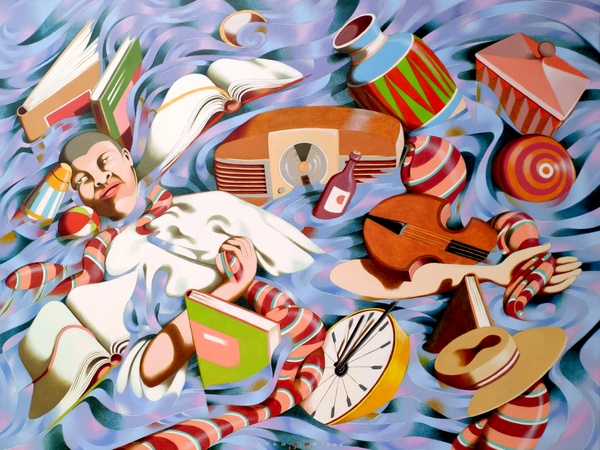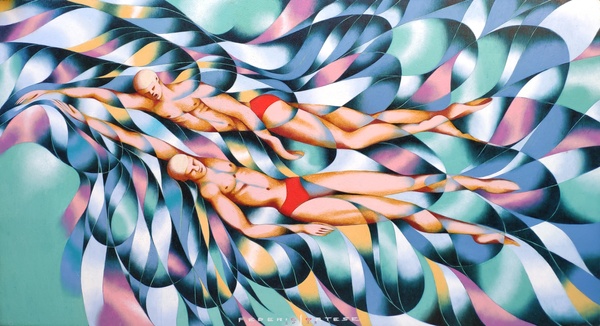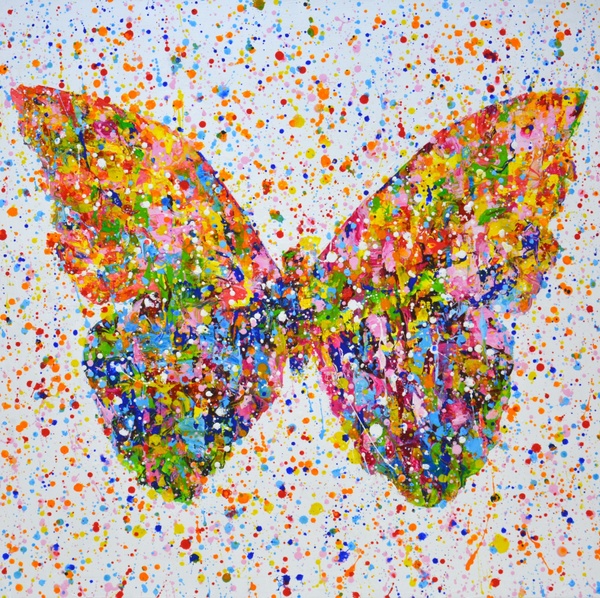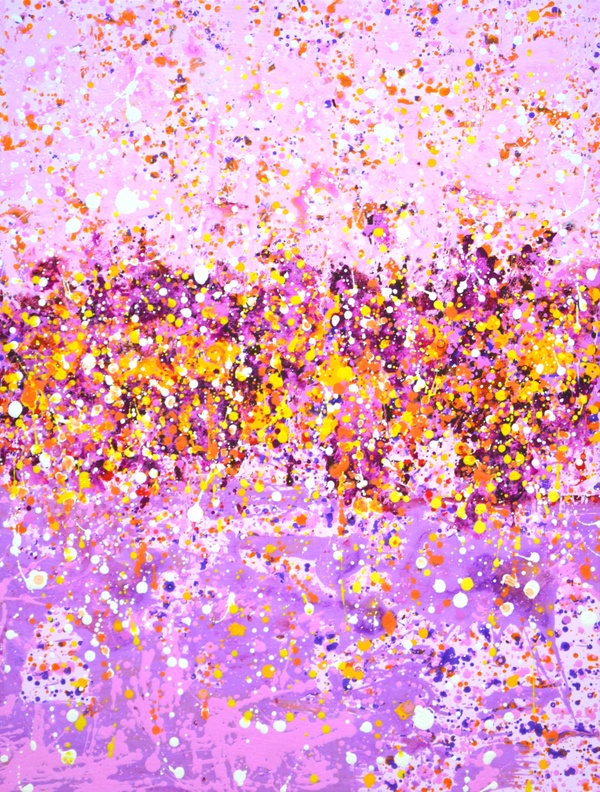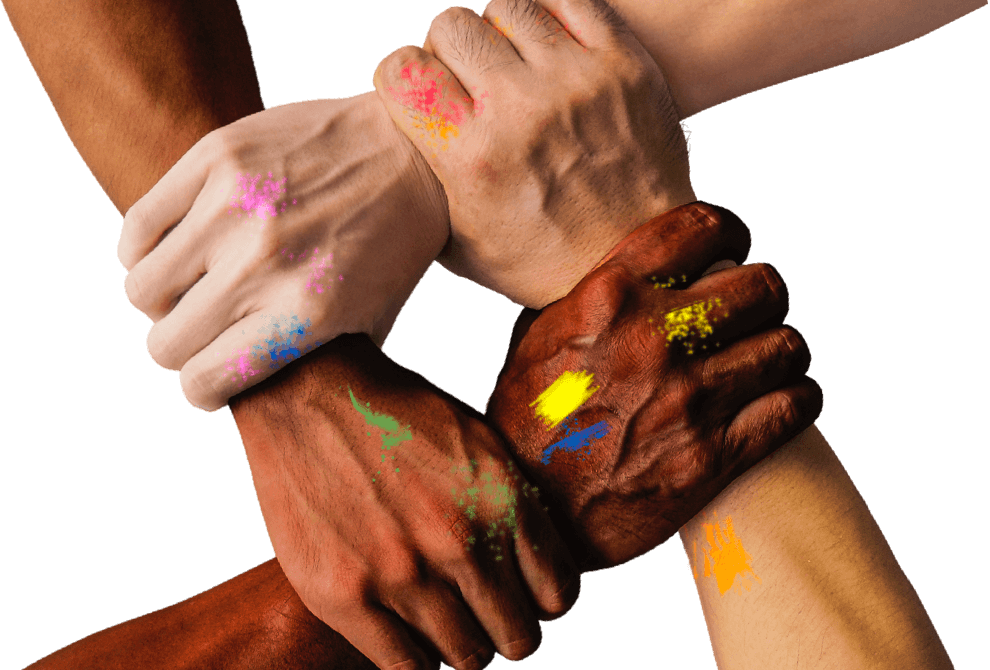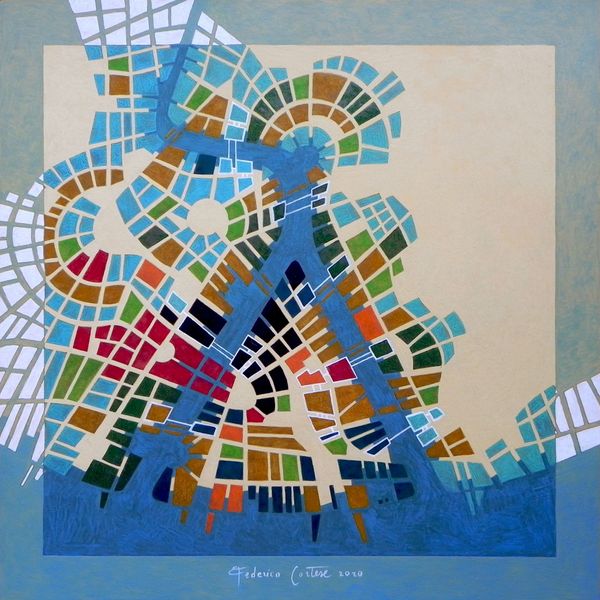
Cipher number 48, 2020
Federico Cortese
Oil on thick paper
Original Artwork, 40 x 40 cm
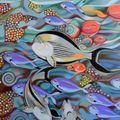 Offered by
Offered by Federico Cortese
Return Policy
I accept returns, exchanges, and cancellations.
Return Policy Terms
Contact me within: 14 days of delivery. Ship items back within: 30 days of delivery. Request a cancellation within: 24 hours of purchase.
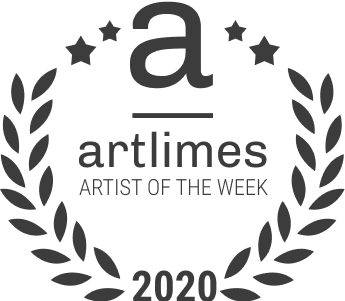 Our
OurExpert's
Perspective
Circular butterflies enter the new era, heart-shaped snowflakes replace common sense, abandoned rooms whisper stories of imaginary creatures, detailed roots lead to psychedelic portals, coded maps promise fantastic explorations, inventions of new alphabets challenge you to take this ride to an unplugged, untouched and certainly unterritotial perfect world.
The contemporary art of Federico Cortese is simply another structure to communication as we know it, replacing each time the formal rules of society with upgraded information, new languages and advanced bar codes; all essential particles of his canvases' isolated narrations.
This artist is the mere representation of elusiveness, a free spirit who uses his art as a tool to reinvent himself, exist in many parallel realities and speak brand new words unknown to you yet. His only humble request is, Please Do Not Kill The Butterflies! Curated by
Curated byKelly Kaimaki, Creative Writer / Curator
About Federico Cortese
I was born in 1971 in Turin, Italy, where I live and work as an artist. Since I can remember, I have always drawn. My preferred techniques are classic oil on canvas paintings, and pencil drawings.
I’m like a mouse in its box. A little mouse safe in its shelter that passes its time gnawing the food stored for the winter. But my food is the drawings. I work within my home. My studio is a room in the house in which I live. In this relatively small space, I accumulated all the materials and equipment I need to draw and paint, but in a certain sense, the suggestions that inspire my work. Here are the desks and drawing boards, with brushes and paint colours, but also, on the walls or placed in closets, paintings, and drawings (I think each finished work is always an inspiration for the next, somehow). A great source of ideas are books and music, and of course, the PC. The graphics programs and virtual modelling programs have become over the years of valuable support. Still, the richest mine is the internet: a reservoir of images and ideas from which to draw, and in which we often are lost (in addition to photos of my travels, all stored on the computer). It’s a small microcosm closed in on itself, somewhat impervious to the outside world (despite a large window with a beautiful view of Turin, almost always I work with the curtains closed). It is a bit as if the real world's suggestions were allowed to enter here only after being filtered and digested only after it has already been turned into experience. Exactly like a rat, eating quiet its supplies in its den, waiting for the end of winter.
In my artistic research, I've always been attracted to all that is sortable, classifiable. Perhaps this attitude stems from primordial insecurity, and perhaps the illusion of putting order into chaos eases this concern. To start this game is sufficient to identify a subject that lends itself to variations. The game consists precisely in identifying the rules that form the basis of possible changes. It’s a little like discovering a new language and trying to decipher the syntax, grammar, and exceptions. With these assumptions, it is easy to see that the subjects of this research can be the most different and, in fact, my designs ranging from butterfly collections to herbaria, from ancient bestiaries to manuals of anatomy, maps, human faces, hands, pornography, flags and so on. They are all languages having their own vocabulary, and I attempt to isolate it and reinvent it, trying to generate new meanings. Consider, for example, a road map or a map. They are born with a practical, precise purpose. Some graphic conventions, signs, symbols are chosen to represent on paper all the information that the map must contain. This, in the end, generates aesthetics. What happens if I isolate this technique of representation from the purpose for which it was created and alter the rules that govern it? Does it continue to convey meaning? Will this meaning be new and unexpected? Or for the reader, this will be meaningless, as an unknown language?




